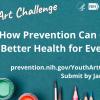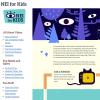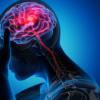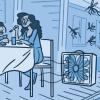Search

Intermittent Fasting and Type 2 Diabetes
Around 1 in 10 Americans live with type 2 diabetes. In this disease, levels of blood glucose, or blood sugar, stay too high for too long. Diabetes can lead to serious health issues. Weight loss is often recommended for those with excess weight and type 2 diabetes. Reducing calorie intake is a common weight-loss strategy. But many people find it hard to cut back on calories. An NIH-funded research…

Enter NIH’s Youth Art Challenge on Prevention
NIH invites teens and young adults to enter a new art challenge. It’s called “ How Prevention Can Create Better Health for Everyone .” Prevention means taking steps to avoid getting sick or injured, instead of treating health problems after they happen. Prevention can include actions like eating healthy foods or getting a flu shot. It can also mean making changes to the environment, such as…

Eye Health for Kids
Want to know more about your eyes? How do they work, and how can you keep them healthy? This website has lots of fun facts especially for kids. Watch videos about how your eyes work. Learn about optical illusions. Get tips for protecting your eyes. And learn how to tell eye facts from eye fiction.

Dejunking Your Diet
Eating healthy isn’t always easy. Expert-recommended diets often emphasize fresh, whole foods and home-cooked meals. But that can be expensive and time-consuming. Highly processed foods are often cheap and convenient. But they also tend to be high in calories, added sugar, saturated fat, and salt, and low in fiber. Scientists are starting to learn that highly processed foods can have certain…, What Are Ultra-Processed Foods?, Most foods that we eat are processed to some extent—they’re modified from how they exist in nature. Chopping, grinding, drying, cooking, and freezing are all forms of food processing. Some forms of processing are good for your health. For example, cooking meat and pasteurizing milk can help prevent foodborne diseases. But if your food is processed too much, it may be harmful to your health. Ultra…, Understanding Overeating, It’s difficult for scientists to study exactly how ultra-processed foods affect overeating. That requires carefully controlling people’s diets for weeks at a time. But NIH metabolism researcher Dr. Kevin Hall has done just that. In a recent study, he compared calorie intake and weight gain in participants who ate a highly processed diet with those who ate a minimally processed diet. Study…, Changing the Brain, One way that ultra-processed foods might lead to overeating is by altering the brain. DiFeliceantonio’s team is using MRI scans to see how ultra-processed foods affect the brain’s reward system. These are the parts of the brain that are activated by pleasure and drive us to seek it out. DiFeliceantonio is studying whether a diet high in ultra-processed foods affect this system, and if the changes…

Decoding Dyslexia
Kids have a lot to learn in their first five years of life. They learn to walk, talk, and eventually to start reading. But while kids can pick up walking and talking naturally, they must be taught how to read. Children who struggle with the building blocks of reading may be at risk for developing dyslexia. Dyslexia is a reading disorder in which people find it hard to link speech sounds to…

Mindfulness Training Can Promote Healthy Choices
An eating plan called the DASH diet can lead to heart-healthy changes, like lower blood pressure. The diet encourages eating fruits, vegetables, and whole grains, and avoiding saturated fats. But despite its known benefits, many people have trouble sticking to this eating plan. A new study tested whether mindfulness training might help people follow the DASH diet. Mindfulness is a focus on the…

Alcohol-Related Blackouts
Alcohol-related blackouts are gaps in memory, when you can’t recall what happened while you were intoxicated. Blackouts can happen to anyone who drinks alcohol, regardless of their age or experience with drinking. Blackouts happen when you drink so much alcohol that your brain isn’t able to store memories long-term. There are two types of blackouts. The most common is a fragmentary blackout,…

Cancer Information Service
NIH specialists can help answer your questions about cancer. This free and confidential service is available to anyone. Get information on clinical trials, treatments, the latest cancer research, quitting smoking, and more. You can call 1-800-4-CANCER, send an email, or chat online. Services are available in English or Spanish.

Battling Bites
As the days grow longer and warmer, summer fun beckons. Swimming, sports, and picnics go hand in hand with warmer weather. But so do bug bites. Mosquitoes in particular can ruin a day outside. And their bites aren’t just itchy and irritating. They can also spread disease. The list of illnesses carried by mosquitoes keeps growing. Some, like malaria, are rarely seen in the United States. Others,…, Blocking Disease, For decades, researchers have been trying to develop vaccines to protect people against mosquito-borne diseases. But most haven’t been as effective as hoped, explains Dr. Matthew Memoli, an infectious diseases researcher at NIH. “And there’s a lot of mosquito-borne diseases,” he says. “If you make a vaccine for every single one, that’s a lot of vaccines to have to develop.” But what if you could…, Deterring Mosquitoes, One of the best ways to avoid mosquito-borne diseases is to prevent bites in the first place. People can take certain steps to protect themselves. “We have personal repellents, like DEET, which you can put on,” says Dr. Carolyn McBride, who studies mosquito biology at Princeton University. Tools like mosquito nets can also prevent bites. But to keep diseases from spreading, they need to be used…, Aedes aegypti, mosquito detects to let it home in on people. These chemicals include certain fats and other substances in and on human skin. They found that a specific mixture of these substances could attract mosquitoes from several feet away. They hope this knowledge can be used to design new ways to repel or trap mosquitoes, over large areas. “This would allow us to push mosquitoes away from all the houses…, Reducing the Spread, If there were fewer biting mosquitoes around, there would be less disease. “But trying to keep mosquitoes down to a low level is really hard,” says Dr. Zach Adelman, a mosquito geneticist at Texas A&M University. “They’re really resilient. Spraying insecticides can get them temporarily. But they always come back.” To disrupt this cycle, researchers have been working on an idea called reduce…, Wolbachia, . This doesn’t kill the mosquitoes. But mosquitoes that carry it have a harder time passing viruses on to people. Adelman’s lab is looking at ways to modify the [qtip:genes|Stretches of DNA that define characteristics like size and disease resistance.] mosquitoes carry to make them less able to spread disease. For example, mosquitoes aren’t normally affected when they pick up the virus that…

The Persistence of Plastics
Since their invention over a century ago, plastics have become part of our daily lives. Our food and drinks are often packaged in plastics. Plastics are also found in fabrics, toys, tools, and more. Plastic packaging can help keep medical tools and equipment germ-free. But we make and use so much plastic that plastic pollution is now a big concern. Some plastics can be recycled. But most are…
NIH Office of Communications and Public Liaison
Health and Science Publications Branch
Building 31, Room 5B52
Bethesda, MD 20892-2094
Contact Us:
nihnewsinhealth@od.nih.gov
Phone: 301-451-8224
Share Our Materials: Reprint our articles and illustrations in your own publication. Our material is not copyrighted. Please acknowledge NIH News in Health as the source and send us a copy.
For more consumer health news and information, visit health.nih.gov.
For wellness toolkits, visit www.nih.gov/wellnesstoolkits.
